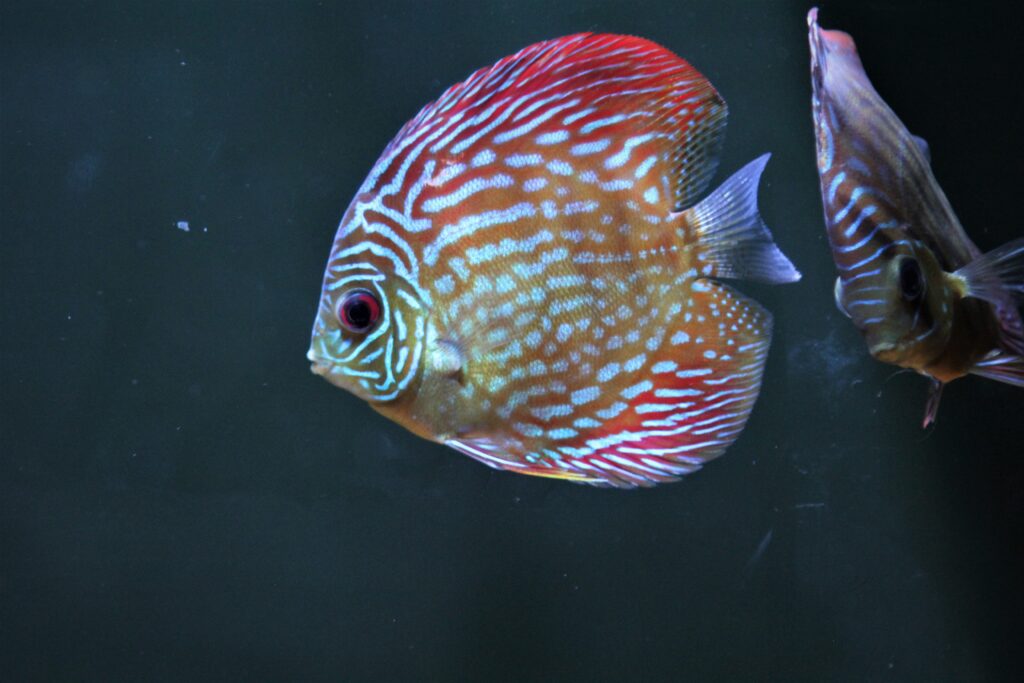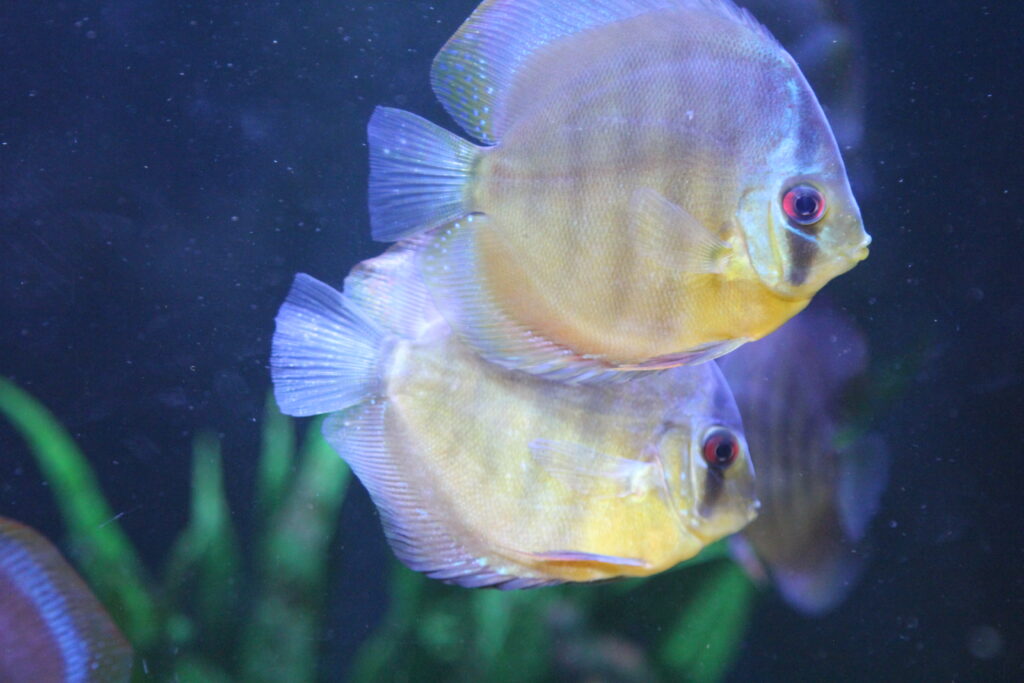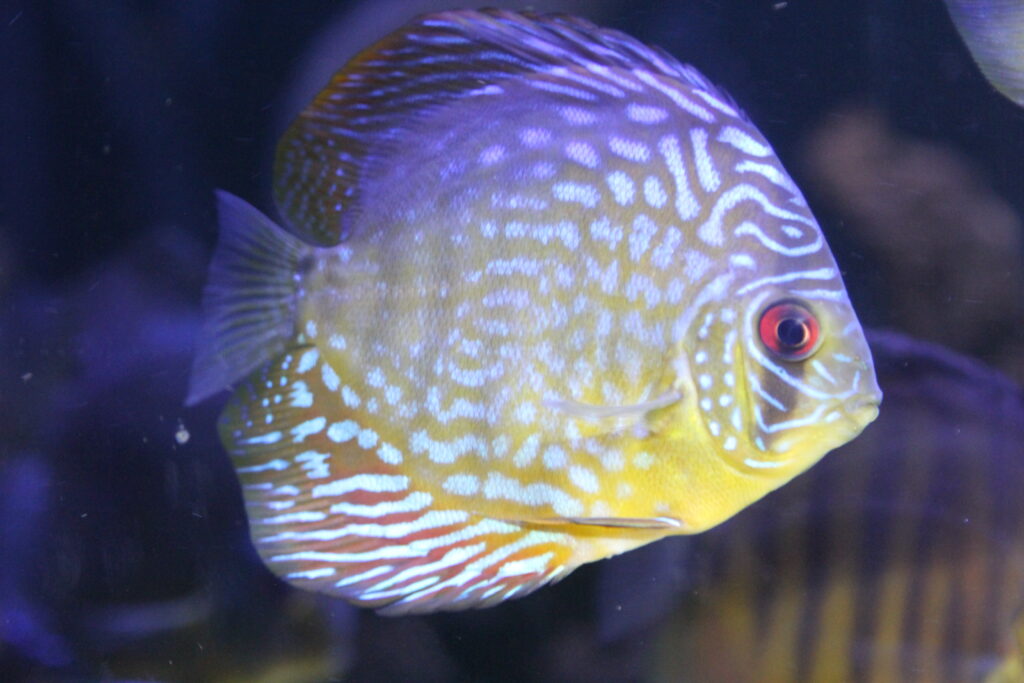We are proud to announce the arrival of Discus Fish at Blue Planet Aquarium! They are located in our Flooded Forest Exhibit!
Immerse yourself in the sounds of the rainforest, our tropical flooded river exhibit mimics the environment found in the Amazon. You’ll come face to fin with Giant Pacu, the often misunderstood Piranha and a new arrival… Discus fish also known as the King of The Aquarium!

Wild discus live in the margins of floodplains, flooded forests and lakes in the Amazon basin. For the most part these areas are away from the fast flowing river tributaries and are called ‘Lentic’ meaning slower moving. They are tall and thin (or ‘laterally compressed’) to help them navigate through tangled undergrowth and sunken branches. Angel fish have evolved into a similar shape for the same reason. Discus can grow to the size of small dinner plates, reaching a diameter of 25cm or more. It’s not known exactly why Discus got the royal title of ‘King’ but it is thought possibly due to their majestic deportment and colours.


It could also have something to do with the fact that they are considered by fishkeeping hobbyists to be one of the most difficult fish to keep. Here at the Blue Planet Aquarium we have found that our discus love clean water so we exchange 20% of their water every day for fresh, clean dechlorinated water. When old enough to breed, discus ‘pair off’, laying and then sharing the guarding of their eggs until they hatch. Once hatched, for the first couple of weeks of their lives, the young fry feed off the slime coat on their parents’ sides until large enough to eat other food. Unlike most other species of the Cichlid family, Discus enjoy the feeling of being in a large group.
At the Blue Planet aquarium, whilst their display may look crowded, this has been done purposely to make them feel safe. Underneath the display, out of sight, is a second large tank (called a sump) which contains another large volume of water and a large filtration system. The purpose of this is to ensure that they enjoy a clean, well oxygenated environment, much like their natural habitat. It is for the same reason that the display is kept at a constant 30oC (86oF); a few degrees warmer than many species of tropical fish. In the wild, with their small mouths and large bodies, discus feed frequently rather than all at once.
It is for this reason that our discus are fed three times a day with a meat based diet which also contains some vegetable matter. Discus’ natural diet is small Crustacea and vegetation and many years of research and experience has resulted in specialised commercially available equivalents.
Come visit these beautiful fresh water Discus Fish and see their amazing patterns for yourself!